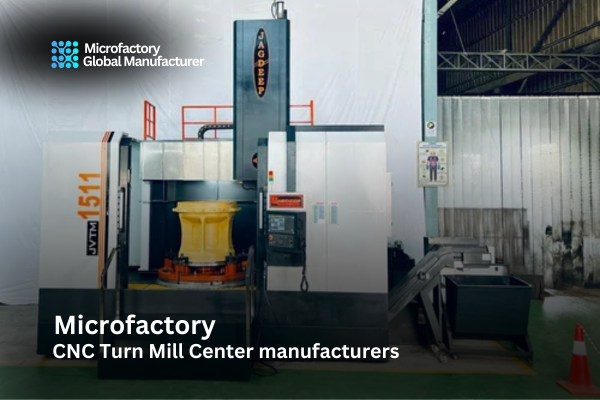Understanding CNC Turn Mill Centers
What is a CNC Turn Mill Center?
A CNC Turn Mill Center is a powerful machine tool that combines the capabilities of both CNC turning and CNC milling machines. Think of it as the best of both worlds—it can rotate parts on an axis like a lathe and mill them using various cutting tools, all in a single process. This dual functionality eliminates the need for separate machines, allowing manufacturers to produce complex parts more efficiently and with greater precision.
Key Functions of CNC Turn Mill Centers
CNC Turn Mill Centers are versatile machines that can perform a variety of tasks. Key functions include turning (where material is spun and shaped), milling (cutting and drilling material), threading, and boring. This combination of processes streamlines production, improving overall productivity and efficiency.
Table of Contents
What is CNC turn mill center manufacturers
A CNC Turn Mill Center is a type of machine tool that combines both turning and milling processes in a single setup. It integrates the functionality of a CNC lathe (used for turning) and a CNC milling machine (used for cutting, drilling, and shaping), allowing for the production of complex parts in one continuous operation.
CNC Turn Mill Center Manufacturers
Manufacturers of CNC Turn Mill Centers are specialized companies that design, produce, and supply these advanced machines to industries like automotive, aerospace, defense, and medical devices. These manufacturers build machines that are capable of precision work, high efficiency, and multi-tasking, making them essential for modern production lines.
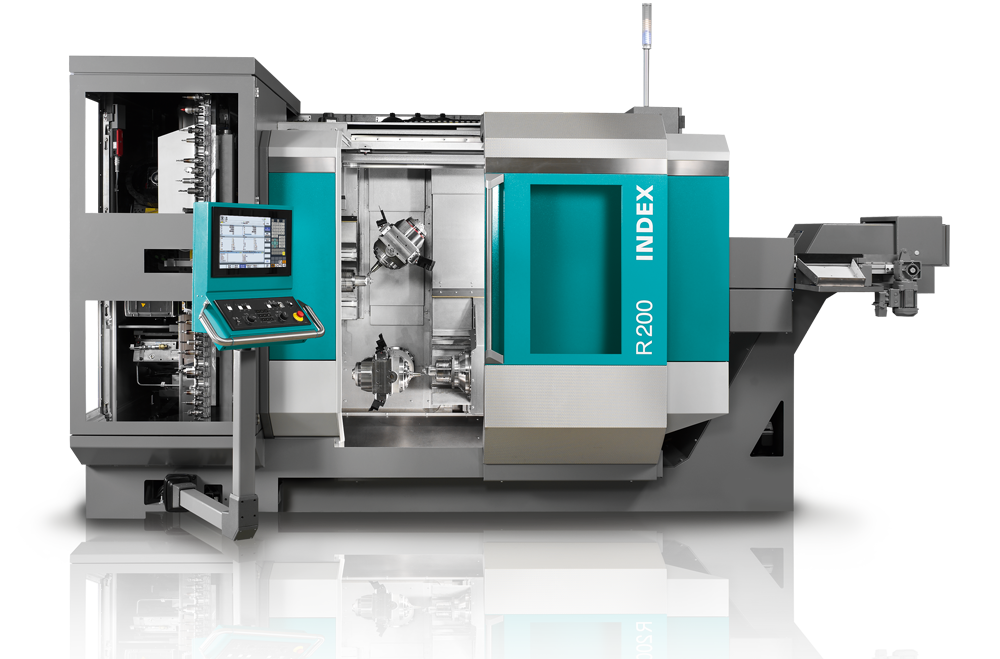
The top CNC Turn Mill Center manufacturers include:
- DMG Mori
- Mazak Corporation
- Haas Automation
- Okuma
These companies provide advanced technology, reliable customer support, and innovations like automation and software integration, helping businesses streamline production and improve efficiency.
Key Features of CNC Turn Mill Center Machines:
- Multi-functionality: Combines turning, milling, drilling, and threading processes.
- Precision: High accuracy in manufacturing complex parts.
- Cost-efficiency: Reduces the need for multiple machines and setups.
- Automation integration: Can be equipped with robotic systems and automated tool changers.
Manufacturers play a vital role in customizing these machines to meet industry-specific needs and ensuring that businesses stay competitive in a fast-evolving manufacturing landscape.
Why is CNC turn mill
CNC Turn Mill Center manufacturers exist because of the increasing demand for efficient, precise, and multi-functional machine tools in various industries. These manufacturers play a crucial role in meeting the growing needs of modern production, where high precision, reduced production time, and versatility are key.
Here’s why CNC Turn Mill Center manufacturers are important:
1. Industry Demands for Efficiency
Industries like aerospace, automotive, medical devices, and defense need machinery that can handle complex tasks while minimizing production time. CNC Turn Mill Centers combine turning and milling operations, which typically require separate machines, into one. This consolidation increases efficiency, reducing the number of setups and production downtime.
2. Need for High Precision
Many industries require the production of highly intricate parts with tight tolerances. CNC Turn Mill Centers can achieve superior precision by following computer-controlled instructions, ensuring consistent quality. This is vital for components like engine parts, aerospace fasteners, and medical devices, where even a small error can cause big problems.
3. Cost-Effectiveness
By manufacturing machines that integrate multiple functions, CNC Turn Mill Center manufacturers help businesses reduce costs. Instead of purchasing separate machines for turning and milling, companies can invest in one machine that does it all, saving on equipment, labor, and factory floor space.
4. Customization and Innovation
CNC Turn Mill Center manufacturers offer customized solutions based on specific industry needs. They continually innovate, integrating new technologies like automation, IoT (Internet of Things), and advanced software. This helps companies stay competitive by improving productivity and enabling them to adapt to changes in manufacturing trends.
5. Support for Complex Part Production
Manufacturers build machines that allow for the production of complex parts in one continuous process. This eliminates the need for multiple setups, transfers, or machines, streamlining the workflow and minimizing the chances of errors.
6. Driving Automation and Smart Manufacturing
Modern CNC Turn Mill Center manufacturers focus on incorporating automation and smart manufacturing technologies. Machines now come with features like robotic arms, automated loading and unloading, and real-time data monitoring, making production faster, more accurate, and less dependent on manual labor.
Why choose CNC turn mill center
Choosing CNC Turn Mill Center manufacturers is a strategic decision for businesses that need efficient, high-precision, and cost-effective manufacturing solutions. Here are several reasons why companies opt for CNC Turn Mill Center manufacturers:
1. Enhanced Productivity and Efficiency
CNC Turn Mill Centers combine turning and milling operations in one machine, which boosts productivity. By reducing the need for multiple setups and transfers between different machines, manufacturers can produce parts more quickly and efficiently. This consolidated process cuts down on production time and increases throughput, making it ideal for high-volume or complex manufacturing.
2. High Precision and Accuracy
CNC Turn Mill Centers offer unmatched precision, which is crucial for industries like aerospace, automotive, medical devices, and defense, where tight tolerances and intricate parts are essential. These machines follow computer numerical control (CNC) instructions to ensure accuracy in every operation, minimizing human error and ensuring consistent quality across production runs.
3. Cost Savings
Choosing CNC Turn Mill Center manufacturers can lead to significant cost savings. Instead of investing in separate turning and milling machines, businesses can purchase a single multi-functional machine. This reduces equipment costs, labor, and the space needed on the shop floor. Additionally, the machines are often equipped with automation features, which can further reduce labor costs and increase efficiency.
4. Multi-Functionality
CNC Turn Mill Centers provide the ability to perform multiple machining operations in one go, including turning, milling, drilling, threading, and more. This multi-functionality allows manufacturers to handle a wide range of tasks without needing to invest in multiple machines, increasing versatility and reducing the need for additional investments.
5. Streamlined Workflow
Since CNC Turn Mill Centers combine turning and milling into one machine, they simplify the production workflow. With fewer setups and transfers between machines, the risk of errors decreases. This streamlined process improves the overall manufacturing efficiency, which is especially beneficial for companies that need to produce complex parts quickly and accurately.
6. Customization and Innovation
CNC Turn Mill Center manufacturers offer customized solutions to meet the specific needs of various industries. They continuously innovate by integrating the latest technologies, such as automation, IoT, and advanced software, ensuring that businesses can stay competitive in the market. This commitment to innovation allows companies to adopt cutting-edge manufacturing techniques and stay ahead of their competitors.
7. Automation Integration
CNC Turn Mill Center manufacturers often integrate automation features, such as robotic arms for loading and unloading, tool changers, and real-time data monitoring. This enables manufacturers to automate repetitive tasks, reduce human intervention, and run production lines continuously, leading to increased uptime and productivity.
8. Reduced Setup Times
With a traditional manufacturing setup, switching between turning and milling operations often requires multiple machine setups. CNC Turn Mill Centers eliminate this need, leading to reduced setup times and faster overall production. This makes these machines ideal for both low and high-volume production environments.
9. Superior Support and Training
Reputable CNC Turn Mill Center manufacturers provide ongoing support and training, ensuring that customers can get the most out of their machines. From installation and maintenance to troubleshooting and operator training, manufacturers offer comprehensive assistance to help businesses succeed.
10. Long-Term Durability and Reliability
Investing in a CNC Turn Mill Center from a trusted manufacturer ensures long-term durability and reliability. These machines are designed to withstand heavy use, deliver precise results over extended periods, and require minimal maintenance. By choosing a reputable manufacturer, businesses can trust that their investment will provide value for years to come.
When to use CNC turn mill center manufacturers
CNC Turn Mill Center manufacturers should be considered when a business or production facility requires a versatile, efficient, and precise machining solution for producing complex parts. Here are key situations and conditions when it’s ideal to use CNC Turn Mill Center manufacturers:
1. When You Need to Combine Multiple Machining Operations
If your production process requires both turning and milling operations, a CNC Turn Mill Center is an excellent choice. These machines combine turning (rotating the workpiece) and milling (cutting or drilling the workpiece) in a single setup, reducing the need for multiple machines and simplifying production. This integration is ideal when you need to save time, labor, and machine setups.
2. When Manufacturing Complex Parts
For parts that have intricate geometries, fine details, or require both turning and milling, CNC Turn Mill Centers are particularly useful. If you’re producing complex components such as automotive parts, aerospace fasteners, or medical devices, a CNC Turn Mill Center provides the precision and flexibility needed to complete the job in one setup. This minimizes errors and improves the overall accuracy of the parts.
3. When Seeking to Improve Production Efficiency
If you’re looking to increase production speed and efficiency, CNC Turn Mill Centers can streamline your workflow by reducing the need for multiple setups and machine transfers. This is especially important in high-volume production environments where time and resource management are critical. Turn Mill Centers allow for continuous production, cutting down idle times and bottlenecks in the manufacturing process.
4. When Reducing Costs is a Priority
Using a CNC Turn Mill Center can lead to significant cost savings in several ways:
- Fewer machines: You only need one machine instead of separate turning and milling machines, which saves on upfront costs.
- Reduced labor: Automation and fewer setups mean fewer workers are needed for operations, reducing labor costs.
- Less floor space: One machine takes up less space, which is especially valuable in factories with limited space or high real estate costs.
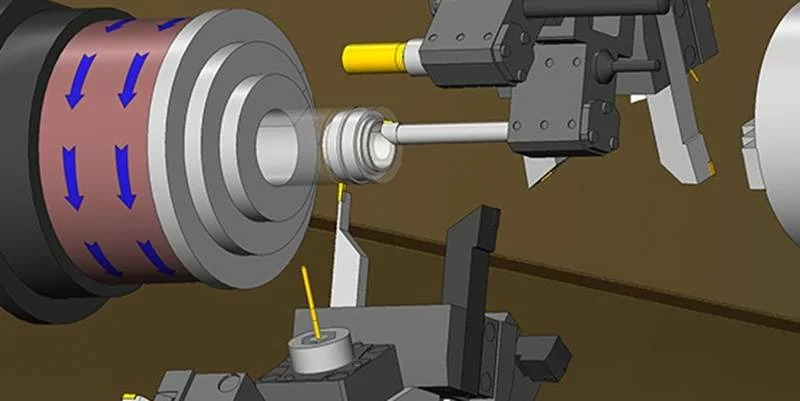
If your goal is to optimize your resources and save money in the long run, it’s time to consider a CNC Turn Mill Center.
5. When Precision and Tight Tolerances Are Critical
Industries like aerospace, automotive, medical devices, and defense require parts with extremely tight tolerances and precision machining. CNC Turn Mill Centers are capable of producing these components with high accuracy and consistency. If your industry demands exacting standards where even minor errors could result in part failure or safety risks, investing in a Turn Mill Center from a reputable manufacturer is crucial.
6. When Looking to Automate and Modernize Production
CNC Turn Mill Centers often come with automation features such as robotic loading/unloading systems, automated tool changers, and real-time monitoring. These features allow for automated production, reducing the need for manual intervention and enabling continuous operations. If your goal is to move toward smart manufacturing and embrace Industry 4.0 technologies, a CNC Turn Mill Center is an ideal solution.
7. When You Need Flexibility in Production Runs
CNC Turn Mill Centers offer flexibility in handling both low and high-volume production runs. If your manufacturing needs change frequently, or if you produce both custom, one-off parts and large batches, these machines can adapt quickly to new jobs without lengthy retooling or setup times. This flexibility is invaluable for manufacturers that work with a variety of parts or prototypes.
8. When Minimizing Setup Time is Essential
For manufacturers that need to minimize downtime, especially during setup changes between operations, CNC Turn Mill Centers can drastically reduce setup times by performing multiple tasks in one go. This is especially important for lean manufacturing environments where maximizing production efficiency is a priority.
9. When You Want to Ensure Long-Term Reliability
When you need a reliable, durable, and low-maintenance machine, choosing a high-quality CNC Turn Mill Center from a reputable manufacturer is key. These machines are built to handle extensive workloads and deliver consistent performance over time, meaning fewer breakdowns, reduced maintenance, and longer-lasting equipment.
10. When You’re Entering Competitive Markets
If you’re looking to stay competitive in industries that require high-speed, precision manufacturing, such as aerospace, automotive, or medical technology, using CNC Turn Mill Centers can give you an edge. These machines allow you to meet complex manufacturing demands quickly, helping your business stand out for its efficiency, accuracy, and ability to handle complex parts.
How CNC turn mill Works
CNC Turn Mill Center manufacturers produce machines that are designed to combine the capabilities of both CNC lathes (for turning) and CNC mills (for milling). These machines allow for multiple machining operations to be performed in a single setup, increasing efficiency and reducing production time. Here’s how CNC Turn Mill Centers work and what manufacturers do to build and optimize these machines:
1. Machine Design and Construction
CNC Turn Mill Centers are engineered by manufacturers to handle multiple machining processes within one machine. Manufacturers focus on designing machines with:
- Rigid structure: To minimize vibrations and maintain accuracy during heavy operations.
- High-precision spindles: That can rotate both the workpiece (turning) and the cutting tool (milling) with precision.
- Automation features: Such as tool changers, robotic arms, and sensors for seamless operation.
The construction materials are chosen for their durability and stability, allowing the machine to maintain high precision over extended periods.
2. Turning and Milling Integration
The core of the CNC Turn Mill Center’s functionality is the integration of turning and milling operations in a single machine:
- Turning Operation: In turning, the workpiece is rotated at high speeds while a stationary cutting tool removes material to shape it. This is typically used for cylindrical parts.
- Milling Operation: Milling involves rotating a cutting tool while the workpiece remains stationary or moves in specific directions (X, Y, Z axes). This process is used for drilling, slotting, cutting, and creating complex geometries.
CNC Turn Mill Centers are built to handle both types of operations seamlessly, allowing manufacturers to switch between them in one machine without the need for multiple setups.
3. CNC Control System
Manufacturers equip CNC Turn Mill Centers with advanced CNC controllers, which are responsible for controlling all the machine’s movements and operations. The CNC system translates a digital design or CAD file into precise commands for the machine’s motors and drives. This system allows:
- Precision: Highly accurate machining following the programmed path.
- Multi-axis control: Managing complex movements and positioning on multiple axes simultaneously (usually X, Y, Z, and sometimes more).
- Automated tool changes: The machine automatically switches between turning tools and milling tools based on the programmed sequence, which improves efficiency and reduces human error.


4. Tooling and Automation
CNC Turn Mill Center manufacturers develop machines that use automatic tool changers (ATCs). These systems can switch between different cutting tools without manual intervention. Manufacturers also offer customized tool configurations depending on the industry and the specific requirements of the part being produced.
Manufacturers may incorporate automation features like robotic loading/unloading systems, tool presetters, and sensors that monitor the machine’s performance. These automated systems reduce downtime, increase production efficiency, and enable continuous operation (e.g., running overnight or during weekends).
5. Multi-Axis Machining
CNC Turn Mill Centers are designed to support multi-axis machining, allowing for the production of complex and detailed parts. Manufacturers configure machines to work on 3, 4, or even 5 axes, meaning the machine can rotate or move the workpiece and cutting tools in multiple directions simultaneously. This multi-axis capability allows for:
- Faster machining of complex parts: No need to move the part to another machine.
- Increased accuracy: The ability to machine intricate geometries with fewer errors.
- Less manual intervention: The machine completes multiple operations in one setup, reducing human error.
6. Programming and Software
CNC Turn Mill Centers rely on G-code programming, which is generated through CAM (Computer-Aided Manufacturing) software. Manufacturers build machines that are compatible with advanced software, enabling the following:
- Custom programming: Manufacturers provide software that allows operators to input designs and part specifications directly into the machine.
- Simulation features: Software simulations ensure that the machining process will work as intended before actual production starts, reducing the chances of errors or collisions.
- Real-time monitoring: Some manufacturers incorporate software systems that track machine performance and diagnose potential issues, improving uptime and reliability.
7. Part Production
Once the CNC Turn Mill Center is programmed, the machine follows the instructions to produce the desired part. Here’s how the process typically works:
- Workpiece setup: The raw material (workpiece) is secured on the spindle or chuck.
- Turning operations: If required, the machine first performs turning by rotating the workpiece and using the cutting tool to remove material.
- Tool change: After the turning process is complete, the machine automatically changes to a milling tool.
- Milling operations: The cutting tool rotates and removes material to create slots, holes, or complex shapes.
- Additional operations: The machine can also perform threading, drilling, tapping, and other operations based on the program.
The entire process is automated and managed by the CNC controller, with minimal manual intervention needed.
8. Inspection and Quality Control
CNC Turn Mill Center manufacturers also focus on quality control by incorporating advanced inspection tools and sensors into their machines. These sensors can detect deviations in the machining process, allowing for immediate adjustments or corrections. Manufacturers often offer add-ons like in-process measurement systems and probes to ensure every part meets the required specifications.
9. Customization and After-Sales Support
Manufacturers of CNC Turn Mill Centers often provide customized solutions based on the customer’s industry and production needs. For example, they may offer different spindle speeds, additional axes, or specialized tool configurations depending on the complexity of the parts being produced.
In addition, most manufacturers provide ongoing after-sales support, including:
- Installation and training: Helping businesses get their machines up and running quickly.
- Maintenance services: Offering regular inspections and servicing to ensure long-term performance.
- Software updates: Keeping the machine’s software up to date to enable the latest features.
Effective Ways Microfactory Became the CNC turn mill center manufacturers
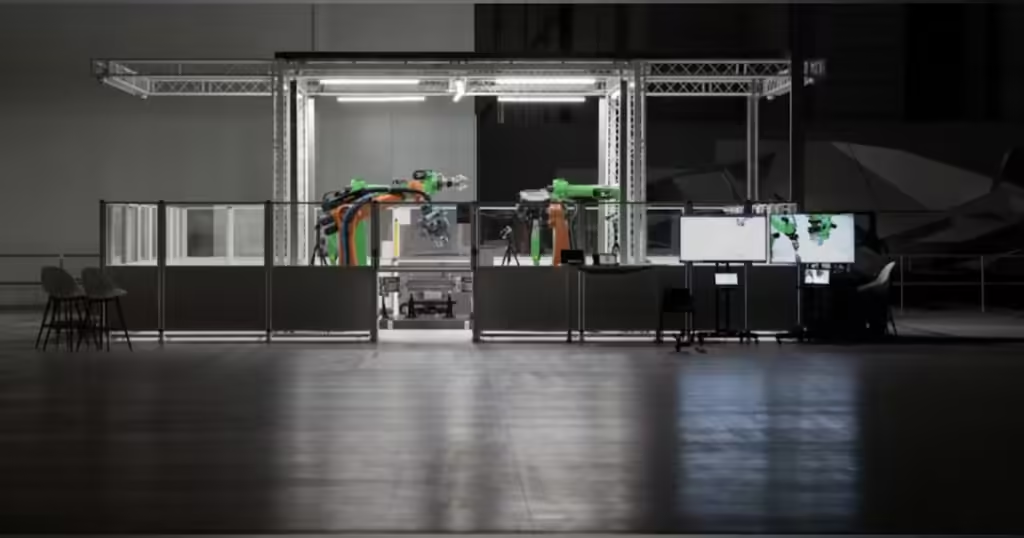
Effective Ways Microfactories Became CNC Turn Mill Center Manufacturers
Microfactory have revolutionized the manufacturing landscape by adopting innovative strategies to become successful CNC Turn Mill Center manufacturers. These small-scale, highly efficient factories specialize in producing high-precision, multi-functional machines like CNC Turn Mill Centers, providing a competitive edge in the modern manufacturing industry. Here are the effective ways microfactory have risen to prominence in this field:
1. Adopting Agile Manufacturing
Microfactory excel by embracing agile manufacturing, allowing them to quickly adapt to changes in market demand and technology. Unlike traditional large-scale factories, microfactory can easily reconfigure their production lines to develop CNC Turn Mill Centers with the latest technological advancements. This agility enables them to:
- Respond swiftly to customer demands.
- Introduce new features, such as automation or multi-axis capabilities.
- Implement rapid prototyping to test and refine products before mass production.
2. Focus on Niche Markets
One of the most effective strategies for microfactoy has been focusing on niche markets. Rather than competing directly with large manufacturers, microfactory target specific industries that require customized CNC Turn Mill Centers for unique applications. By catering to specialized sectors like medical devices, aerospace, or automotive, microfactory can design tailored machines that meet exact customer specifications.
For example, a microfactory might develop a CNC Turn Mill Center with enhanced precision and automation specifically for manufacturing small, complex medical components. This focus on specialization allows microfactories to stand out in a crowded market.
3. Leveraging Advanced Technology
Microfactory heavily invest in advanced technology, which enables them to produce high-quality CNC Turn Mill Centers with cutting-edge features. They leverage the following innovations:
- Additive manufacturing: Microfactory often integrate 3D printing into their production processes, allowing them to produce custom parts for CNC machines quickly and cost-effectively.
- Automation: Many microfactory incorporate robotic systems into their CNC Turn Mill Centers, allowing for fully automated production lines that increase efficiency and reduce human error.
- Smart manufacturing: Microfactory embrace IoT (Internet of Things) and real-time monitoring to ensure optimal performance and minimal downtime.
These technological advancements help microfactory create CNC machines that are competitive with larger manufacturers while maintaining the flexibility to adapt to market trends.
4. Efficient Use of Resources
Microfactory operate on a small scale, which means they need to maximize their use of resources to remain competitive. This includes:
- Optimizing space: Microfactory often operate in smaller facilities, so they prioritize efficient layouts that minimize waste and maximize production capacity. This allows them to produce CNC Turn Mill Centers without the overhead costs associated with larger factories.
- Reducing material waste: By employing lean manufacturing techniques and using advanced CAD/CAM software, microfactory can reduce waste during the machining process, ensuring cost-effective production.
- Energy efficiency: Many microfactory incorporate energy-efficient machinery and renewable energy sources to reduce operational costs and minimize environmental impact.
This resource-conscious approach allows microfactory to maintain competitive pricing while producing high-quality machines.
5. Collaboration and Networking
Microfactory benefit from their ability to collaborate and network with other small manufacturers, suppliers, and industry partners. By forming strategic alliances, microfactory can access:
- Shared resources: For example, partnering with a materials supplier or a technology firm to access specialized tools or raw materials at reduced costs.
- Knowledge sharing: Microfactory often participate in industry networks where they can exchange knowledge on the latest manufacturing trends and technologies.
- Co-development opportunities: Collaborating with other companies to co-develop new CNC Turn Mill Centers or incorporate specific technologies into their machines.
This collaborative approach helps microfactory overcome the limitations of their smaller scale and leverage the expertise of other players in the industry.
6. Customization and Flexibility
Microfactory by offering highly customized solutions to meet the unique needs of their customers. Large-scale manufacturers often focus on mass production, which limits their ability to provide tailored machines. In contrast, microfactory can build CNC Turn Mill Centers designed specifically for a customer’s requirements, offering features such as:
- Specialized tooling configurations.
- Multi-axis capabilities tailored to particular industries (e.g., aerospace or medical device manufacturing).
- Custom software integration for unique machining processes.
This level of flexibility allows microfactories to cater to smaller businesses or industries that need highly specific machines, giving them a unique advantage over larger competitors.
7. Faster Innovation Cycles
Microfactory operate on shorter innovation cycles than traditional manufacturers. Because of their smaller size and agile structure, they can:
- Rapidly prototype and test new designs for CNC Turn Mill Centers.
- Introduce innovations to the market faster, giving them a competitive edge.
- Continuously improve machine performance based on customer feedback and new technological developments.
This fast-paced innovation allows microfactories to stay ahead of market trends and continuously meet the evolving demands of industries that rely on CNC Turn Mill Centers.
8. Focus on Sustainability
Microfactoy often emphasize sustainability as a core part of their business model. This includes:
- Reducing waste through lean manufacturing practices.
- Using recycled materials where possible in the production of CNC Turn Mill Centers.
- Energy-efficient processes that minimize the environmental impact of manufacturing.
By prioritizing sustainable practices, microfactory attract customers who are looking for environmentally responsible solutions. This focus on sustainability also helps microfactory with global trends in green manufacturing.
9. Direct Customer Interaction
Unlike large-scale manufacturers, microfactories have the ability to interact directly with customers, providing personalized service and ensuring that their CNC Turn Mill Centers meet the customer’s specific needs. This close relationship offers several advantages:
- Understanding specific requirements: Microfactory can work closely with clients to understand their exact machining needs and provide tailored solutions.
- Quicker response times: With a more streamlined process, microfactories can address customer requests or feedback faster than larger manufacturers.
- Greater customer satisfaction: Personal attention to detail and the ability to customize products lead to higher customer satisfaction and long-term partnerships.
10. Lower Costs and Competitive Pricing
Because microfactory operate on a smaller scale and often use more efficient production processes, they can offer CNC Turn Mill Centers at competitive prices. This lower overhead allows them to pass cost savings onto their customers without compromising on the quality or functionality of their machines. For smaller businesses or those seeking customized solutions, this makes microfactory an attractive option.
Benefits of CNC Turn Mill Centers
Precision and Efficiency
One of the standout benefits of CNC Turn Mill Centers is their precision. Using computer-controlled instructions, these machines execute every cut, turn, and drill with pinpoint accuracy. Manufacturers can achieve tight tolerances, reducing waste and ensuring quality. Plus, because these machines can perform multiple tasks in one setup, they drastically cut down production time.
Multi-Functionality
Who doesn’t love a multi-tasker? CNC Turn Mill Centers are the ultimate in multitasking for the manufacturing industry. By combining turning and milling functions, they eliminate the need for multiple setups and transfers between machines. This multi-functionality simplifies the manufacturing process and speeds up production, saving time and money.
Cost-Effectiveness
Although CNC Turn Mill Centers are a significant investment upfront, they provide long-term cost savings. By consolidating multiple processes into one machine, companies save on labor, space, and equipment maintenance. With reduced downtime and faster production cycles, businesses see a quick return on investment.
Key Considerations When Choosing a CNC Turn Mill Center Manufacturer
Quality and Reliability
Not all CNC machines are created equal, and the same goes for manufacturers. One of the top considerations when selecting a CNC Turn Mill Center manufacturer is the quality and reliability of their machines. High-quality machines are built to last, constructed with durable materials, and designed with precision in mind. The last thing you want is for your machine to break down during production.
Materials Used
It’s crucial to know what materials are used in the construction of the CNC machine. High-quality steel and robust components ensure better performance and durability, meaning less maintenance over time and more consistent results.
Durability and Precision
A well-constructed CNC Turn Mill Center not only lasts a long time but also maintains its precision after extensive use. High-end manufacturers test their machines rigorously to ensure both long-term durability and accuracy.
Technology and Innovation
The world of manufacturing is ever-evolving, and so are the machines powering it. When choosing a manufacturer, it’s important to look for one focused on innovation and technological advancements. From advanced software to automated features, the latest technology can significantly improve your manufacturing process.
Software Capabilities
The software controlling your CNC machine is as critical as its hardware. Robust software with features like CAD/CAM integration, real-time monitoring, and customizable programming options can make a huge difference in your overall machining experience.
Automation Integration
With the rise of automation in manufacturing, many CNC Turn Mill Centers now come equipped with automated features like robotic loading/unloading and tool changers. Automation can greatly increase efficiency, allowing for continuous production with minimal human intervention.
Customer Support and Training
A great machine is only as good as the support that comes with it. When evaluating manufacturers, consider the level of customer support and training they offer. Top manufacturers provide ongoing technical support, maintenance services, and comprehensive training to ensure you get the most out of your machine.
Top CNC Turn Mill Center Manufacturers
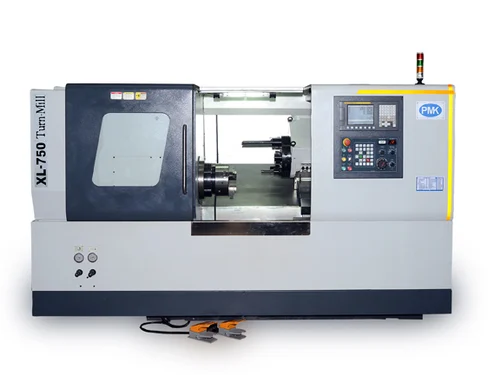
DMG Mori
DMG Mori is a global leader in CNC technology, known for producing high-quality, innovative Turn Mill Centers. With decades of experience and a reputation for cutting-edge technology, DMG Mori is a trusted name in the industry. Their machines come with robust features and precision engineering.
Mazak Corporation
Mazak is another industry heavyweight. Their Turn Mill Centers are known for reliability, user-friendly interfaces, and advanced automation features. Mazak’s dedication to innovation keeps them at the forefront of CNC technology, making them a favorite among many manufacturers.
Haas Automation
For those seeking a more affordable option without sacrificing quality, Haas Automation is a popular choice. Haas Turn Mill Centers offer high performance at a competitive price point, making them ideal for small to mid-sized manufacturers.
Okuma
Okuma is renowned for its precision machines and focus on innovation. Their Turn Mill Centers are durable, versatile, and designed to handle complex machining tasks, particularly in industries like aerospace and automotive.
Industry Applications for CNC Turn Mill Centers
Aerospace and Defense
In aerospace and defense, precision is critical. CNC Turn Mill Centers are essential for manufacturing high-precision components such as turbine blades, fasteners, and structural parts that need to meet stringent safety and regulatory standards.
Automotive Manufacturing
CNC Turn Mill Centers are widely used in the automotive industry. From engine parts to transmission components, these machines can produce a wide range of parts with high precision and efficiency, keeping production lines running smoothly.
Medical Device Production
The medical industry relies heavily on precision machining. CNC Turn Mill Centers are used to manufacture intricate components such as surgical tools, implants, and medical devices, where even the smallest error could have major consequences.
Emerging Trends in CNC Turn Mill Technology
IoT and Smart Manufacturing
The Internet of Things (IoT) is revolutionizing the CNC industry. Manufacturers are increasingly integrating IoT capabilities into Turn Mill Centers, allowing for real-time data collection, monitoring, and analysis. This leads to more efficient production and smarter decision-making.
Additive Manufacturing Integration
Additive manufacturing, also known as 3D printing, is being integrated into CNC Turn Mill Centers, enabling hybrid manufacturing processes. This combination of subtractive and additive techniques opens up new possibilities for complex part designs and reduces material waste.
Conclusion
CNC Turn Mill Centers have transformed modern manufacturing by combining the capabilities of turning and milling into one machine. They offer a wide range of benefits, from precision and efficiency to cost-effectiveness, making them a valuable investment for manufacturers in various industries. When selecting a CNC Turn Mill Center manufacturer, it’s essential to consider factors such as quality, technology, and customer support. Choosing the right machine and partner will streamline your production processes and help you stay competitive in the market.
FAQs
1. What industries benefit most from CNC Turn Mill Centers?
Industries such as aerospace, automotive, medical device manufacturing, and defense benefit the most due to their need for precision, efficiency, and the ability to produce complex parts.
2. How does automation improve CNC Turn Mill Centers?
Automation improves CNC Turn Mill Centers by increasing production speed, reducing human error, and boosting uptime. Features like robotic arms for loading/unloading and automated tool changers are commonly integrated into these machines.
3. What is the average cost of a CNC Turn Mill Center?
The cost of a CNC Turn Mill Center can vary widely, ranging from $100,000 to $500,000 or more depending on the machine’s size, capabilities, and the manufacturer.
4. How long does it take to train operators on CNC Turn Mill Centers?
Operator training typically takes several weeks to a few months, depending on the complexity of the machine and the experience of the operator.
5. What are the key features to look for in a CNC Turn Mill Center?
Key features include precision, software capabilities, automation integration, durability, and the ability to handle complex machining tasks across different industries.

